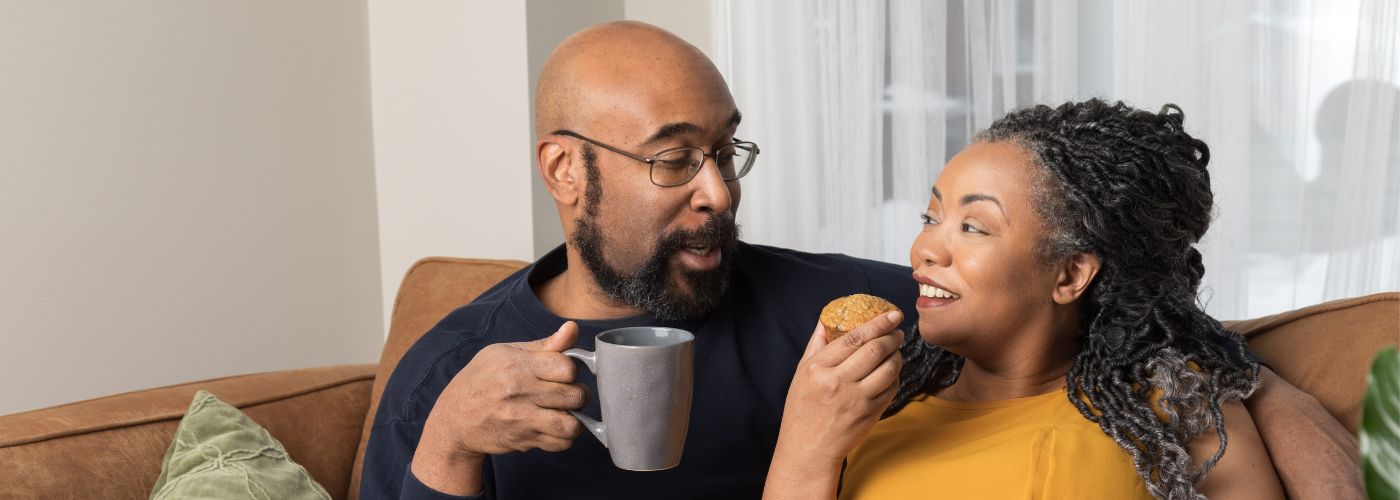Communicating effectively with your partner is essential for a healthy and thriving relationship. However, all too often, disagreements can escalate into full-blown arguments, leaving both parties feeling frustrated and unheard. Join us as we discuss some of the best tips on how to communicate without fighting with your partner.
Best Ways To Learn How To Communicate Without Fighting
One effective way to communicate without fighting is to practice active listening. This is couples therapy technique is often used when learning how to communicate without fighting your partner.
Proactive listening involves truly hearing and understanding the other person’s perspective before expressing your own thoughts. By validating their feelings and showing empathy, you can diffuse tensions and create a more harmonious conversation.
Additionally, using I statements instead of you statements can help prevent defensiveness and encourage open dialogue. This can be communicated by simply using phrases like ‘I feel’ or ‘I think’ instead of blaming statements that begin with ‘You always’ or ‘You never.’
How To Practice Patience When Expressing Feelings
When it comes to learning how to communicate without fighting with your partner, patience is key. It’s important to take the time to truly listen and understand each other’s perspective before responding.

By practicing patience when expressing your feelings, you create a space for open and honest dialogue. This can be done by being mindful of your tone and body language, as they play a significant role in how your message is received.
Avoiding defensive or accusatory language can help prevent misunderstandings and defensiveness from escalating into an argument.
Additionally, giving each other the benefit of the doubt and assuming good intentions can foster a sense of trust and mutual respect in the relationship. Remember, effective communication takes effort from both partners!
Learn To Take Accountability For Your Own Actions
Learning to take accountability for your own actions is essential in communicating effectively with your partner. Instead of blaming each other, focus on owning up to your mistakes and discussing ways to resolve conflicts constructively. By far one of the best tips when learning how to communicate without fighting your partner.
By taking responsibility for your actions, you demonstrate maturity and a willingness to work towards a harmonious relationship. To take accountability for your own actions, start by reflecting on your behavior and acknowledging any wrongdoing.
It’s important to not only admit your mistakes but also show genuine remorse for how your actions may have impacted your partner. Communicate openly and honestly about what you could have done differently and actively listen to your partner’s perspective as well.
Apologize sincerely, without making excuses or deflecting blame. Moving forward, make a conscious effort to learn from the situation and make positive changes in your behavior to prevent similar issues from arising in the future. This technique is often used in mindfulness therapy.
Focus On Conflict Resolution Strategies
When conflict arises with your partner, practice active problem-solving together. Focusing on finding mutually beneficial solutions rather than trying to win the argument.
Another helpful tip is to avoid bringing up past conflicts or making hurtful comments – stay focused on the current issue at hand. By approaching communication with understanding and a willingness to work together, you can navigate disagreements without turning them into fights. This is one of the best tips when learning how to communicate without fighting your partner.
How To Avoid & Manage Triggers During An Argument
One effective way to communicate without fighting with your partner is to actively avoid and manage triggers during an argument. By recognizing what topics or behaviors typically lead to conflict, you can work together to establish boundaries and guidelines for discussing these sensitive issues calmly.

This may involve setting ground rules for communication, such as taking breaks when emotions run high or avoiding accusatory language.
Instead of immediately jumping to defend your own point of view, make an effort to truly understand your partner’s perspective and validate their feelings. This approach can help de-escalate tensions and promote a more collaborative way of resolving conflicts.
Remember, communication is not just about talking but also about listening and understanding each other’s needs on a deeper level.
Use Respectful Language When Fighting
Learning how to communicate without fighting your partner can simply mean using respectful language when communicating. This can be done by expressing your thoughts and feelings honestly, but in a calm and non-confrontational manner. It’s also important to listen actively to your partner’s perspective and show empathy towards their feelings.
Another way to practice this is by remembering that communication is a two-way street, so be willing to compromise and find common ground in order to resolve conflicts effectively. By approaching conversations with respect, empathy, and understanding, you can build a stronger connection with your partner and navigate disagreements more constructively.
By practicing effective communication skills, you can avoid unnecessary conflicts and build a stronger connection with your partner. Remember that communication is key in maintaining a healthy relationship.
Understand & Set Boundaries Within The Relationship
One key to communicating without fighting with your partner is to understand and set boundaries within the relationship. This means clearly defining what behaviors are acceptable and unacceptable, and discussing these boundaries openly and honestly.
By establishing mutual respect for each other’s feelings and needs, you can create a safe space for open communication.
Another important aspect of communicating without fighting is learning to actively listen to your partner without interrupting or getting defensive. Practice empathy by trying to see things from their perspective, even if you disagree.
By approaching disagreements with curiosity rather than defensiveness, you can foster a more constructive dialogue that leads to resolution rather than conflict.
Overall, keep all of these tips in mind. These tips can help prepare you for couples therapy as well if you and your partner decide to go to therapy.

Related Stories
Exploring Art Therapy For Emotional Healing
What if the key to unlocking your emotional healing lies not in talk therapy, but
Aug
Benefits of Group Therapy For Depression
Feeling alone in your battle against depression? You’re not alone—many find solace in the shared
Jul
How To Build Trust In A Relationship
Did you know that a lot of relationships fail due to a lack of trust?
Jun